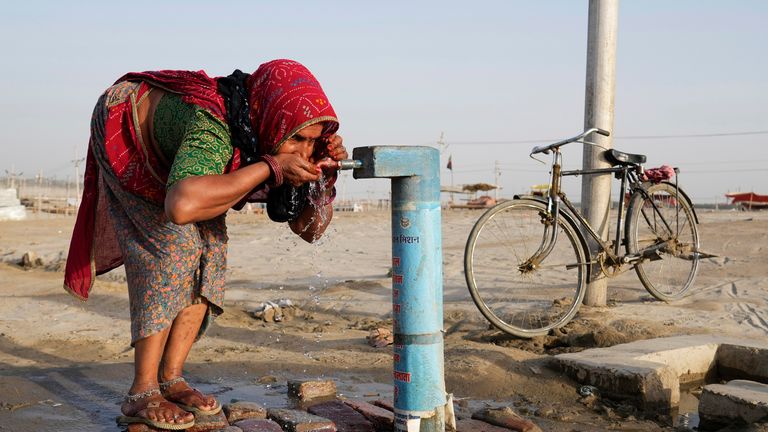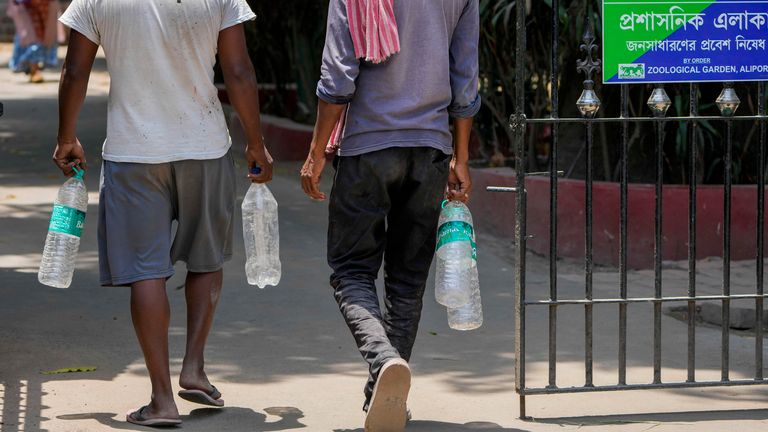Countries in South and Southeast Asia have been coping with a weeks-long heatwave which has seen record temperatures sweep parts of the region.
Pupils in the Philippines, India and Bangladesh have been told to stay at home and learn remotely due to a severe health risk.
Schools in Cambodia have also cut back on their hours.
Cambodia faces its hottest temperature in 170 years, according to meteorologists – as high as 43C (109F).
Bangkok in Thailand has reached 40C (104 F), but the heat index is said to have topped 50 C (122 F) due to the heat being trapped among the mass of buildings.
The United Nations Children’s Fund warned in April that the heat could put the lives of millions of children at risk and asked people who care for them to take extra precautions.
A spokesperson for UNICEF said around 243 million children were exposed to hotter and longer heatwaves.
They said the increased heat was “putting them at risk of a multitude of heat-related illnesses, and even death”.
Thirty people in Thailand have died from heatstroke in the past month, according to data from the country’s health ministry.
People are being advised to avoid outdoor activities and to stay hydrated.
Several towns in Myanmar were included on lists of the hottest spots globally last month, with temperatures reaching 48.2C (118F) in at least one case.
Parts of eastern India also experienced their hottest April on record.
Kerala, on India’s west coast, this week instructed all schools and colleges to close until Monday, while influencers in Bangladesh have encouraging people to plant trees in response to the record heat.
Benjamin Horton, director of the Earth Observatory of Singapore, said there were three factors for heatwaves: a naturally-occurring climate phenomenon known as El Nino, an increase in global temperatures, and human-induced climate change.
Read more:
London must adapt to ‘new reality’ of extreme heat
Scotland ditches ‘out of reach’ climate change target
Brazil is currently experiencing another climate phenomenon – La Nina – with 39 dead and 68 missing in floods across the country.
More than 24,000 people have been forced to leave their homes due to the flooding.
Scientists believe the naturally-occurring phenomenon has intensified due to the impact of climate change.



